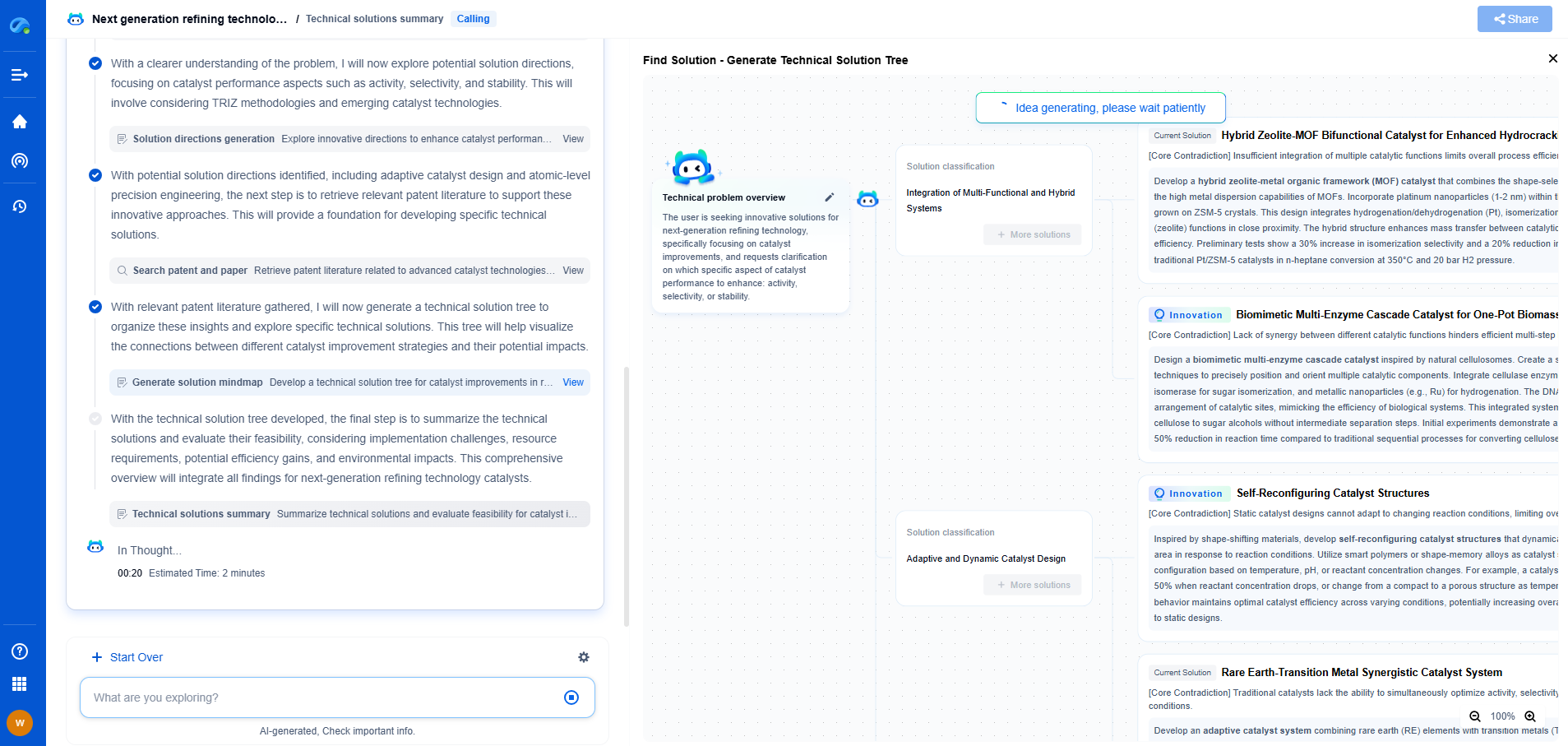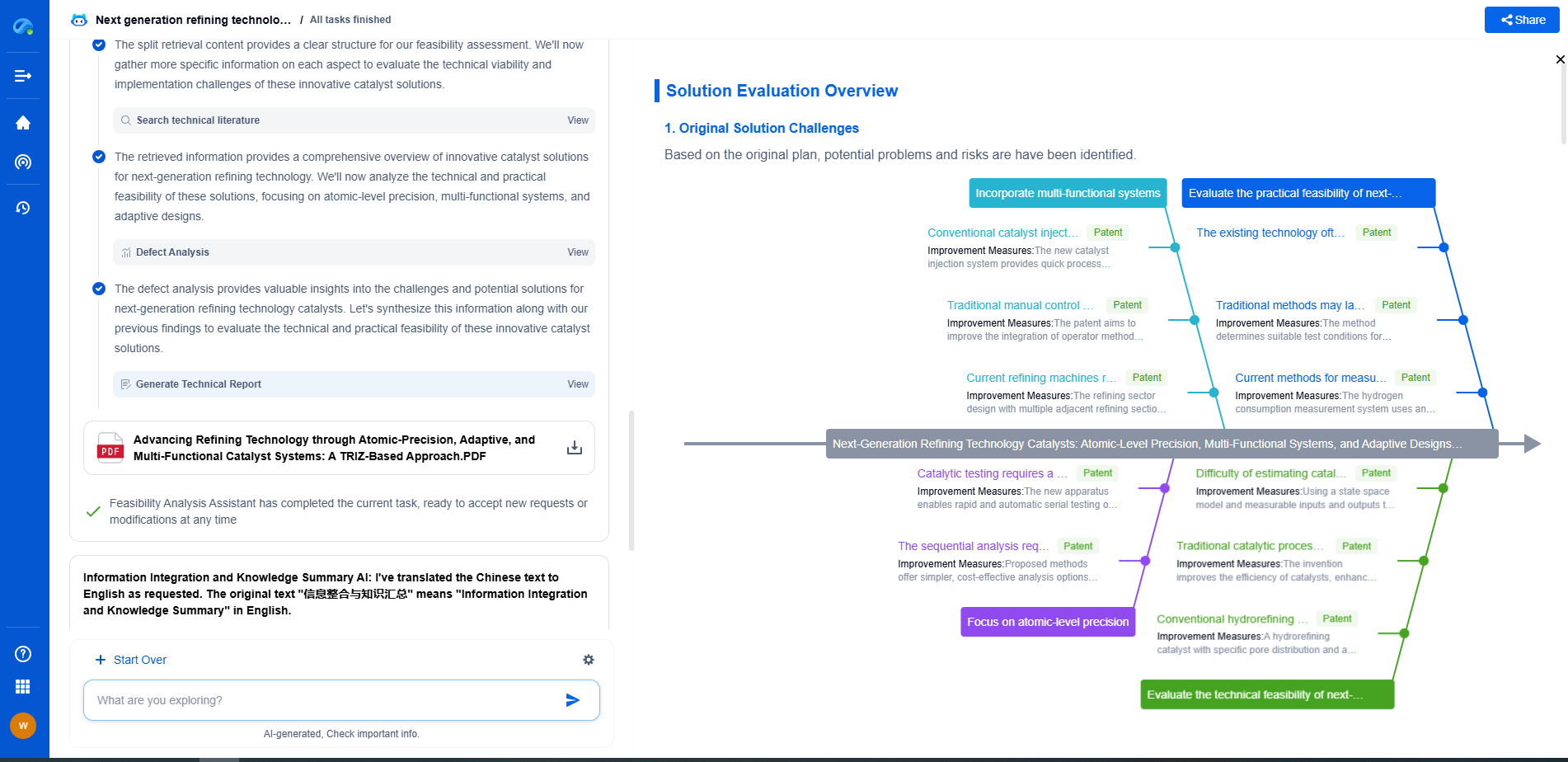Cloud-Based SCADA: AWS vs. Azure for Pipeline Operators
JUN 20, 2025 |
Understanding SCADA in the Cloud
SCADA systems provide real-time data monitoring and control, crucial for pipeline operators to ensure efficient and safe pipeline operations. Transitioning SCADA systems to the cloud offers several advantages, including scalability, enhanced data analytics, and improved security. However, choosing between AWS and Azure requires a comprehensive understanding of their offerings, capabilities, and how they align with pipeline operators' specific needs.
AWS: Pioneering Cloud Solutions
Amazon Web Services (AWS) is a leading cloud services provider known for its extensive range of services and global infrastructure. For pipeline SCADA systems, AWS offers several benefits:
1. Scalability and Flexibility: AWS provides a highly scalable infrastructure that allows pipeline operators to adjust resources based on demand. This flexibility is crucial for handling varying data loads and unexpected operational changes.
2. Robust Data Analytics: AWS offers advanced data analytics tools, such as Amazon Kinesis and Amazon Redshift, enabling operators to derive actionable insights from real-time data. This capability enhances decision-making and operational efficiency.
3. Security and Compliance: Security is critical for pipeline operations. AWS provides a secure environment with robust compliance measures, ensuring data integrity and protection against cyber threats.
Azure: Microsoft's Cloud Competitor
Microsoft Azure is another powerhouse in the cloud services arena, offering competitive features for SCADA systems:
1. Seamless Integration: Azure offers seamless integration with existing Microsoft applications and services, making it an attractive option for organizations already utilizing Microsoft tools. This integration streamlines operations and simplifies data management.
2. AI and Machine Learning Capabilities: Azure boasts powerful AI and machine learning tools, including Azure Machine Learning and Cognitive Services. These tools empower operators to predict maintenance needs and optimize pipeline performance.
3. Global Reach and Infrastructure: With a vast global network, Azure ensures low-latency connections and high availability, essential for real-time SCADA operations. This extensive infrastructure supports consistent and reliable data access.
Key Considerations for Pipeline Operators
When selecting between AWS and Azure for cloud-based SCADA, pipeline operators should consider several factors:
1. Specific Needs and Requirements: Understanding the unique needs of the pipeline operation is crucial. Operators should assess factors like data volume, security requirements, and integration capabilities to determine which platform aligns better with their operational goals.
2. Cost Implications: Both AWS and Azure offer pay-as-you-go pricing models, but cost structures can differ based on services used. Operators should evaluate the total cost of ownership, considering factors such as storage, data transfer, and computational needs.
3. Vendor Support and Ecosystem: The level of support and the ecosystem surrounding the platform can significantly impact the implementation and operation of SCADA systems. Pipeline operators should explore the support options, community resources, and partnerships available with each provider.
Conclusion: Tailoring the Choice to Operational Needs
Choosing between AWS and Azure for cloud-based SCADA systems is not a one-size-fits-all decision. Pipeline operators need to carefully evaluate their specific operational requirements, budget constraints, and the level of integration needed with existing systems. Both AWS and Azure offer robust solutions, but the optimal choice depends on aligning the platform's capabilities with the unique demands of the pipeline operation. As technology continues to evolve, staying informed about the latest developments and trends in cloud-based SCADA systems will be essential for pipeline operators seeking to optimize their operations.
Transform the Way You Innovate in Pipeline Technology—with AI-Powered Intelligence
From corrosion-resistant materials to smart monitoring systems and advanced flow control mechanisms, the pipeline industry is undergoing rapid technological transformation. Yet keeping up with evolving engineering solutions, regulatory landscapes, and competitive patents can be a major bottleneck for R&D and IP teams.
Patsnap Eureka is your AI-powered research companion—built specifically for professionals in high-tech and infrastructure domains like pipeline technology. Whether you're designing high-pressure transport systems, assessing trenchless installation innovations, or safeguarding proprietary flow assurance solutions, Eureka provides real-time insights into global patent trends, emerging technologies, and R&D intelligence—all in one intuitive interface.
Empower your team to innovate faster, reduce technical blind spots, and stay ahead of industry shifts. Discover Patsnap Eureka today and bring clarity and confidence to your pipeline technology decisions.
- R&D
- Intellectual Property
- Life Sciences
- Materials
- Tech Scout
- Unparalleled Data Quality
- Higher Quality Content
- 60% Fewer Hallucinations
Browse by: Latest US Patents, China's latest patents, Technical Efficacy Thesaurus, Application Domain, Technology Topic, Popular Technical Reports.
© 2025 PatSnap. All rights reserved.Legal|Privacy policy|Modern Slavery Act Transparency Statement|Sitemap|About US| Contact US: help@patsnap.com

